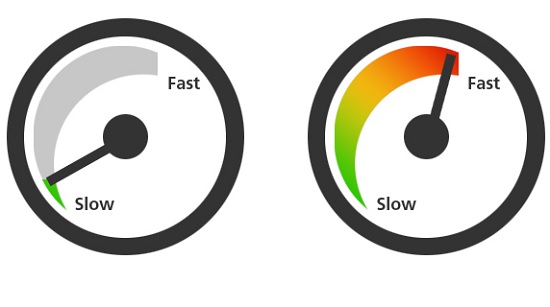Navigating the intricate landscape of SEO agency pricing can be daunting. The fluctuating nature of the field often leaves you perplexed. How does SEO agency pricing really vary, and what factors influence it?
In this article, we’ll demystify the complex world of SEO pricing and offer clarity and insights to help you make informed decisions about your digital investment. Join us as we break down the various components that determine the cost of SEO services.
The Many Faces of SEO Agency Pricing
At a basic level, you’d expect that clicks or specific headline KPIs would dictate SEO pricing. But, in truth, it’s more complex. An intricate web of variables plays into how agencies price their services. “Yeah, pricing’s interesting,” as Robb Farhrion, the managing partner of Flying Group Agency, puts it. “You’re going to get a wide spectrum of what can be effective from an SEO perspective.”
1. Content Production:
Content is often termed the king in the digital realm, and for good reasons. Producing content requires expertise, research, and time. The more content you want, the higher the effort required and, thus, the costs.
While generating a lot of content might seem practical, ensuring each piece is high quality is essential. High-quality content is more likely to rank well on search engines and appeal to the target audience.
So, while quantity has its place, the focus should always be on maintaining a balance with quality to get the best return on investment. In Robb’s words, “higher amounts of content will obviously drive up pricing.”
2. Targeting Areas:
Are you targeting a small, local area or aiming for a broader, national audience? Naturally, targeting a more extensive area, often with more keywords, can cost more. As Robb mentioned, “Our local SEO pricing will be slightly less than if we were targeting either a wider regional area or at a national scale.”
Local SEO focuses on reaching audiences in a specific geographical area, whereas national SEO aims to appeal to a broader audience, often country-wide. Local SEO can be more detailed, targeting neighborhoods or cities, while national SEO has a broader scope.
As the scope of targeting expands, the complexities and competition increase. A national campaign has to consider varying demographics, preferences, and keywords, thereby increasing the necessary effort and, subsequently, the costs.
3. Speed and Optimization:

Technical SEO is optimizing a website to be efficiently crawled and indexed by search engines. This encompasses website speed, mobile optimization, XML sitemaps, structured data, and more. While it might not be directly content-related, it’s crucial for ensuring that the content can be found and ranked.
Time invested in technical optimization directly impacts the website’s health. A well-optimized site loads faster provides a better user experience, and is favored by search engines. The more hours dedicated to this, the quicker a website can reach its optimal performance, leading to better rankings and organic visibility.
“If we’re spending twice the amount of hours on that optimization, we’re going to get our website into a position that is healthier twice as fast,” Robb explained.
4. Volume of Content and Keywords:
Consistency in content creation ensures that a website remains fresh and relevant. Search engines, especially Google, favor websites that regularly update and add new content, as it indicates that the site is active and provides current information.
Keywords are the backbone of SEO. Selecting the right keywords and optimizing for them is a meticulous task. The more keywords a campaign targets, the more comprehensive the research, optimization, and tracking required. Additionally, high-competition keywords require more in-depth content and backlink strategies, adding to the costs.
Robb’s insight on this is particularly enlightening: “If we’re producing 20 content pieces on a monthly basis, that doubles the opportunity for us to drive and attract traffic to our website.”
There’s No ‘One Size Fits All’ in SEO
In digital marketing, “one size fits all” might sound convenient, but it’s more of a myth than a reality—especially regarding SEO. Understanding the unique nature of individual businesses, their distinct audiences, and the ever-evolving digital landscape makes it clear that no two SEO strategies can be identical.
One of the standout points from Robb was the realization that there needs to be a universal SEO package. “From our perspective, there’s no one-size-fits-all SEO package. That’s where companies get burnt. We’re really coming in and catering a custom SEO plan specific to the client’s needs,” he shared. It’s a sentiment that resonates with many professionals in the industry. An effective SEO strategy needs to be tailored to individual business needs.
The Pitfalls of Generic SEO Packages
While it might be tempting to opt for a generic SEO package—after all, they often promise a list of services at an attractive price—the drawbacks can be significant. These packages tend to apply the same strategies across different businesses, irrespective of the niche, audience, or specific objectives. Over time, this approach can lead to:
• Missed Opportunities: A generic strategy might need to pay more attention to specific channels or tactics that are uniquely suited to a particular business, limiting potential growth.
• Inefficient Resource Allocation: By focusing on services that might not be entirely relevant to a business, resources can be wasted on strategies that don’t yield optimal results.
• Lack of Personalization: In an age where consumers crave personal experiences, a generic approach can result in content and campaigns that need more resonance with the target audience.
The Power of Custom-Tailored SEO Strategies
Recognizing that every business is different is the first step toward a successful SEO strategy. Custom-tailored SEO plans consider each business’s unique challenges, opportunities, and objectives. Such strategies offer:
• Relevance: Every decision, from keyword selection to content creation, is based on thorough research and an in-depth understanding of the specific business and its audience.
• Flexibility: Custom strategies can easily adapt to changes in the business environment, industry trends, or shifts in consumer behavior.
• Optimal ROI: By focusing on the most relevant and effective tactics for a particular business, custom strategies often result in a better return on investment.
Average SEO Agency Pricing: What to Expect?
While some agencies might offer services in the “$1,000, $1,200 range, $1,500 range a month,” it’s essential to remember that costs can fluctuate based on the factors mentioned. There are “a lot of different pricing models, variables,” but understanding the value and depth of what’s being offered is key.
Final Thoughts On SEO Agency Pricing
Decoding SEO agency pricing is a challenging feat. However, one can begin to grasp the cost structure by considering variables like content production, targeting areas, speed of optimization, and the volume of content and keywords. And as Robb aptly puts it, when discussing a robust SEO campaign, “there’s a lot to it.” So next time you evaluate an SEO proposal, delve deeper, ask questions, and ensure you’re getting value for your investment.
Hire the Flying V Group SEO agency to help you craft useful SEO strategies at an affordable price. With our experience and tools, you’ll get great results for your investment.
FAQs on SEO Agency Pricing
1. How much does an agency charge for SEO?
The cost varies widely. As Robb mentioned, “We’re going to sit on the lower end, around $1,000 to $1,500 a month, covering content creation, technical optimization, backlink building, and more. However, targeting larger areas or producing more content can scale the cost upwards.”
2. How much does SEO cost in the US?
While the main focus here was on broader pricing structures, costs in specific regions like US would depend on local competition, targeted audience, and specific services required. It’s always a good idea to research local agencies and their offerings.
3. How much is a one-time SEO Agency Pricing fee?
A one-time SEO fee usually covers initial setup, such as website audits, keyword research, and on-page optimizations. Costs can range from a few hundred to several thousand dollars based on the project’s complexity.
4. Are SEO agencies worth it?
Absolutely. Given the intricacies involved in an effective SEO strategy and the expertise required, agencies often provide the necessary guidance, strategies, and execution to enhance online visibility and drive organic traffic.






0 Comments